Shape Recognition Easy Geometry Worksheets for Ages 6-7
14 filtered results
-
From - To
Discover fun and engaging Shape Recognition worksheets designed for children aged 6-7! These easy geometry worksheets boost your child's understanding of basic shapes while enhancing their critical thinking skills. Each worksheet includes vibrant illustrations and interactive activities that make learning enjoyable and effective. Perfect for home or classroom use, these materials cater to a variety of learning styles, encouraging kids to identify, compare, and categorize shapes confidently. Support your child’s early math journey with our carefully crafted resources that pave the way for future geometry skills. Explore the world of shapes and watch your child excel in math with these delightful worksheets!
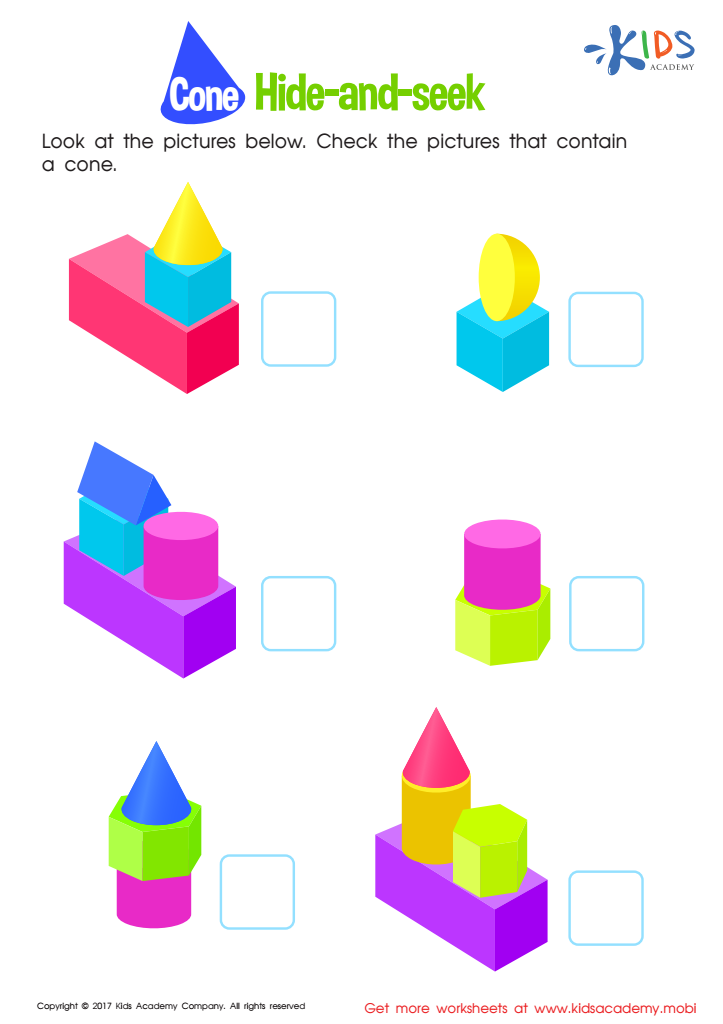

Cone Hide-and-Seek Worksheet
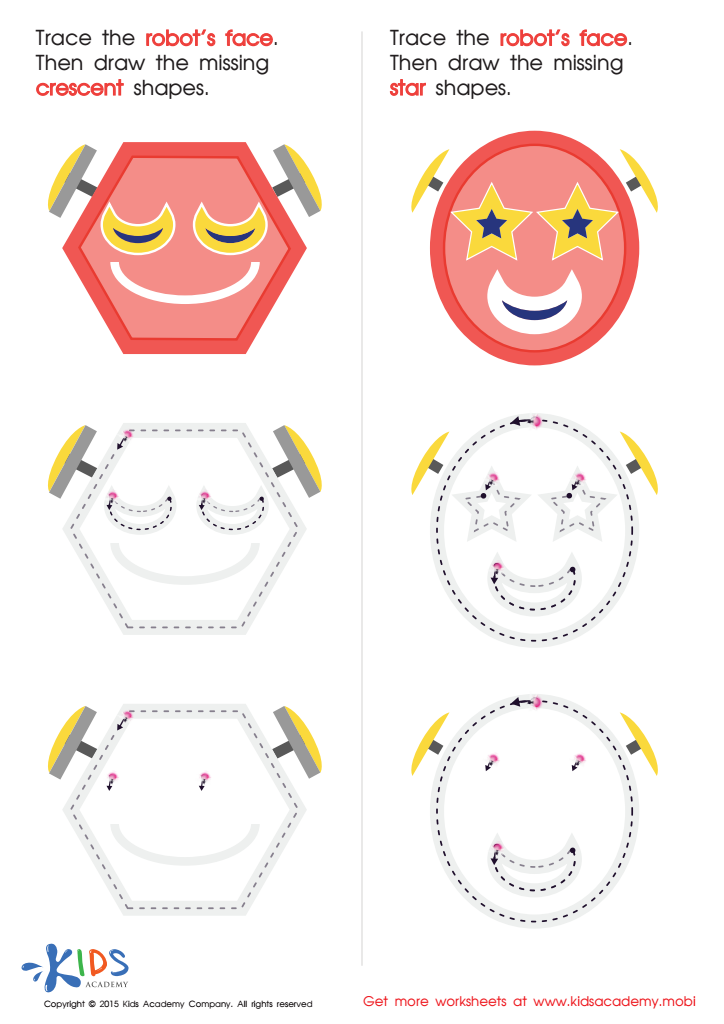

Composing a Robot's Face of Crescents And Stars Worksheet
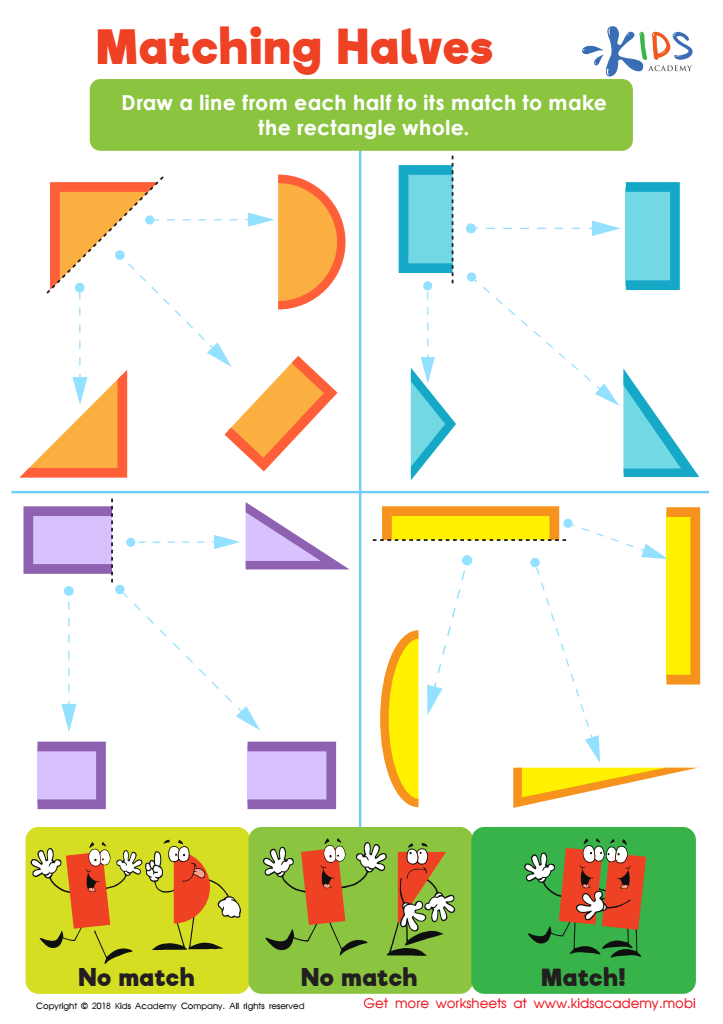

Matching Halves Worksheet


Faces of 3D Shapes Worksheet
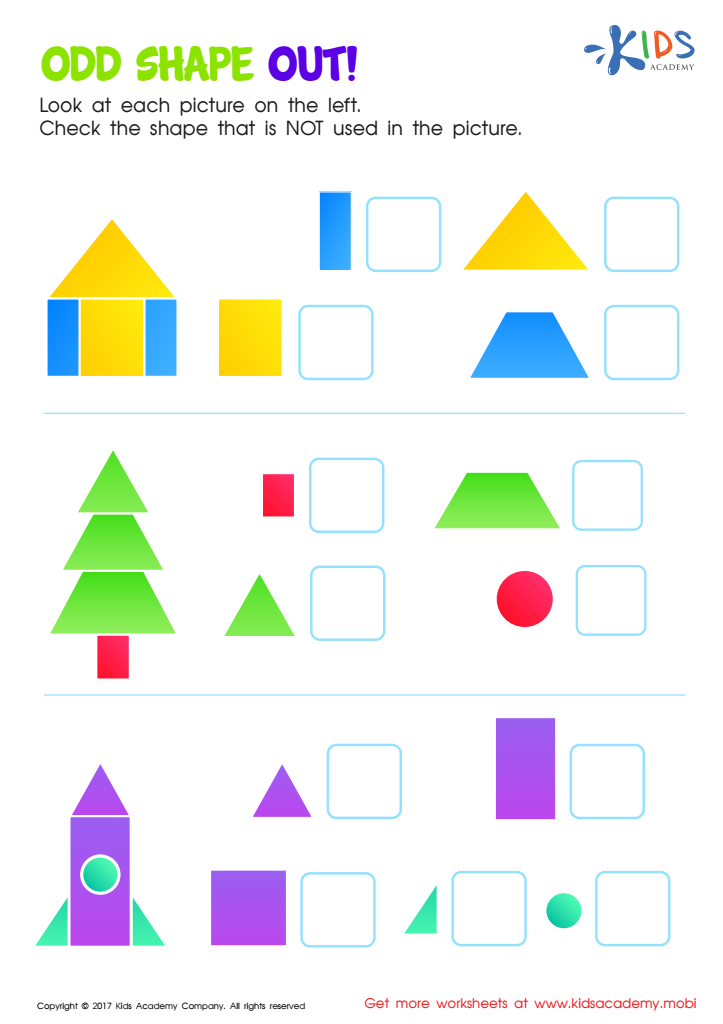

Odd Shape Out Worksheet for Grade 1
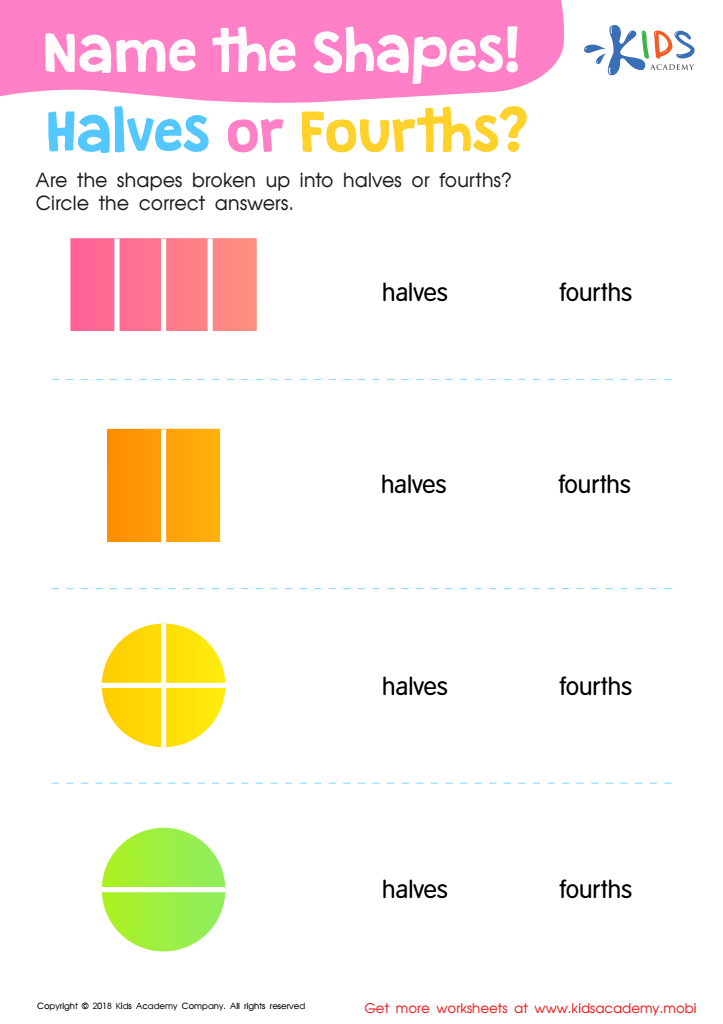

Name the Shapes Halves or Fourths? Worksheet
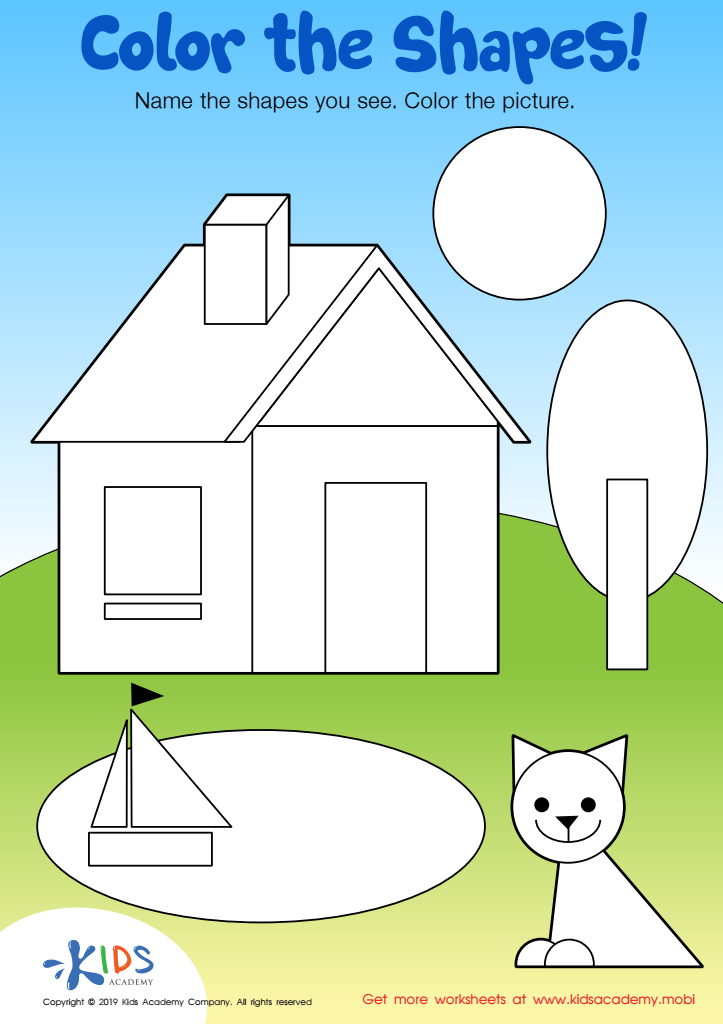

Color the Shapes Worksheet
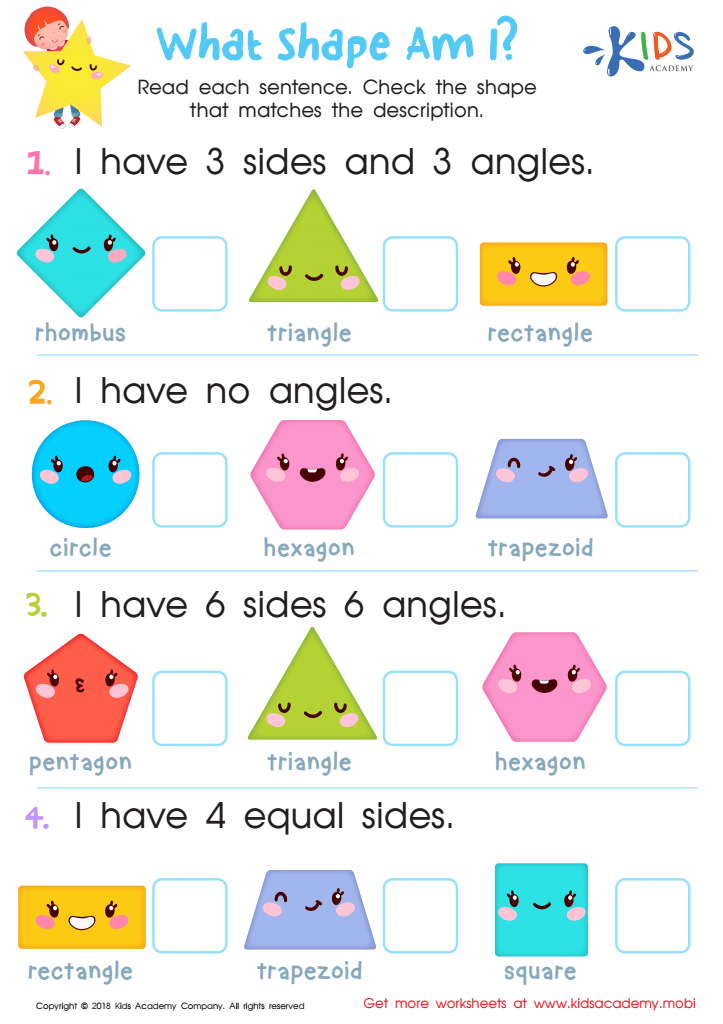

What Shape Am I? Worksheet
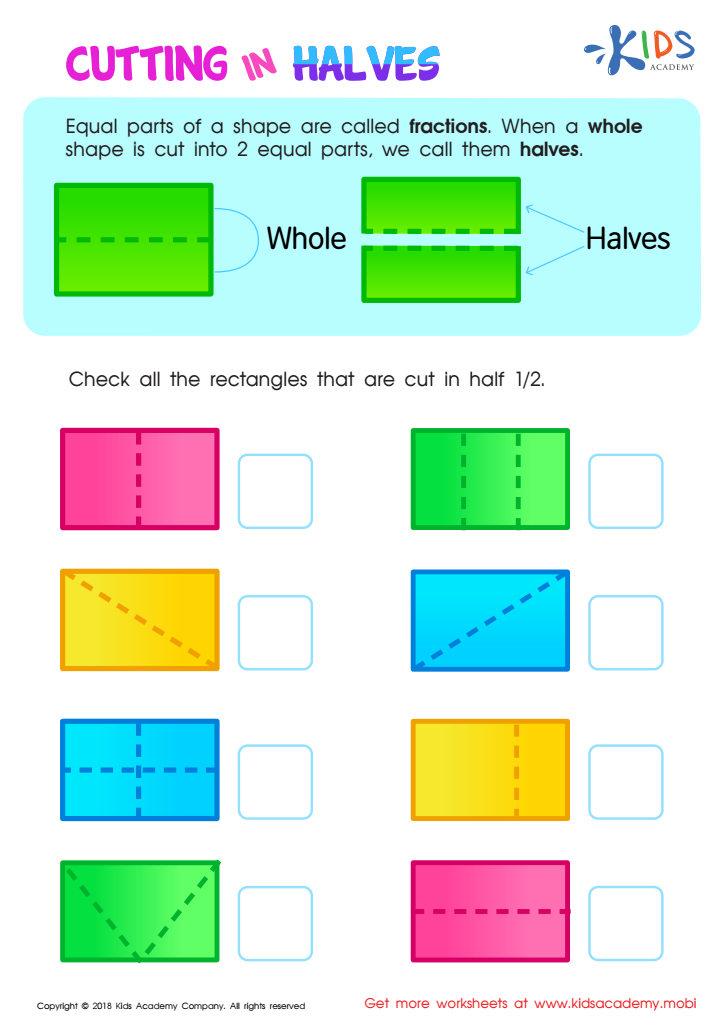

Cutting in Halves Worksheet
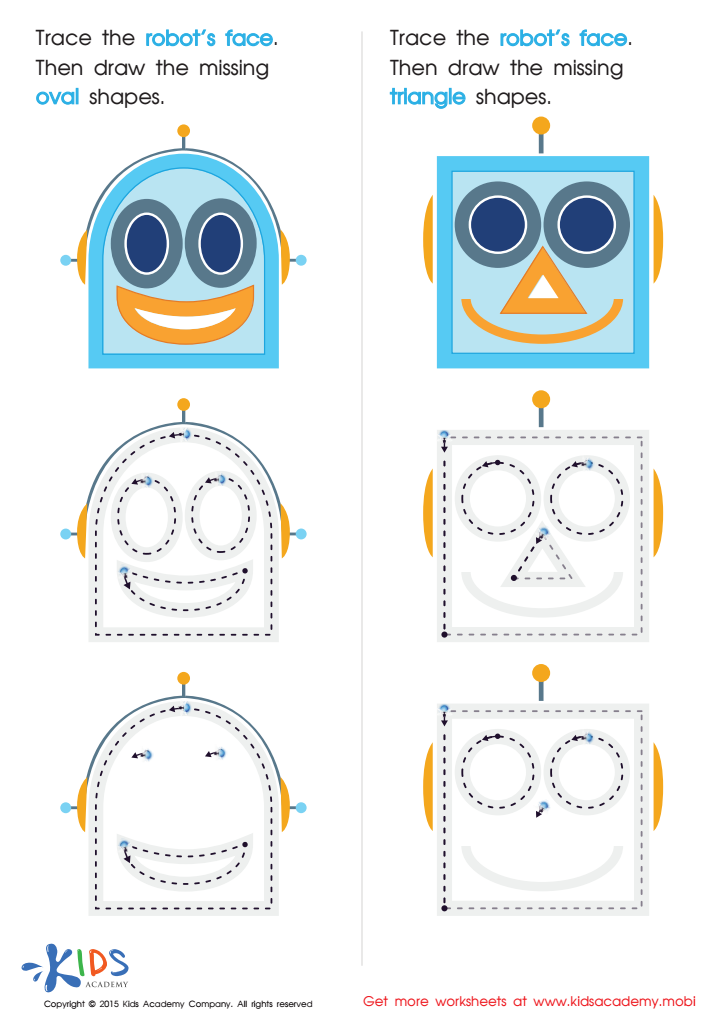

Drawing Ovals And Triangles with Fun Printable
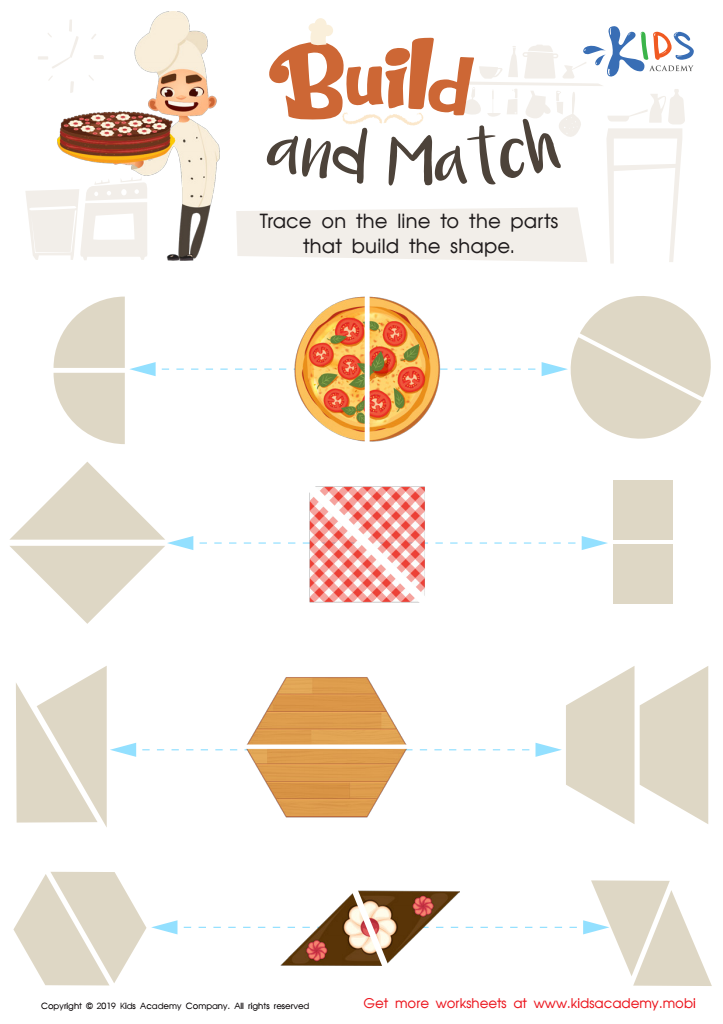

Build and Match Worksheet
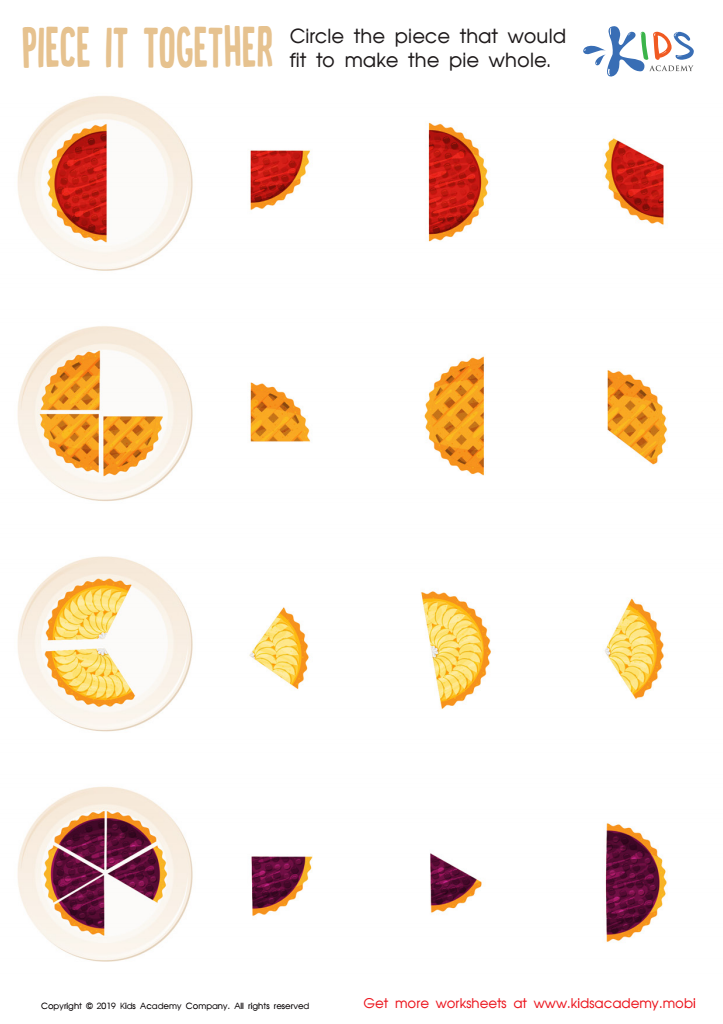

Piece it together Worksheet
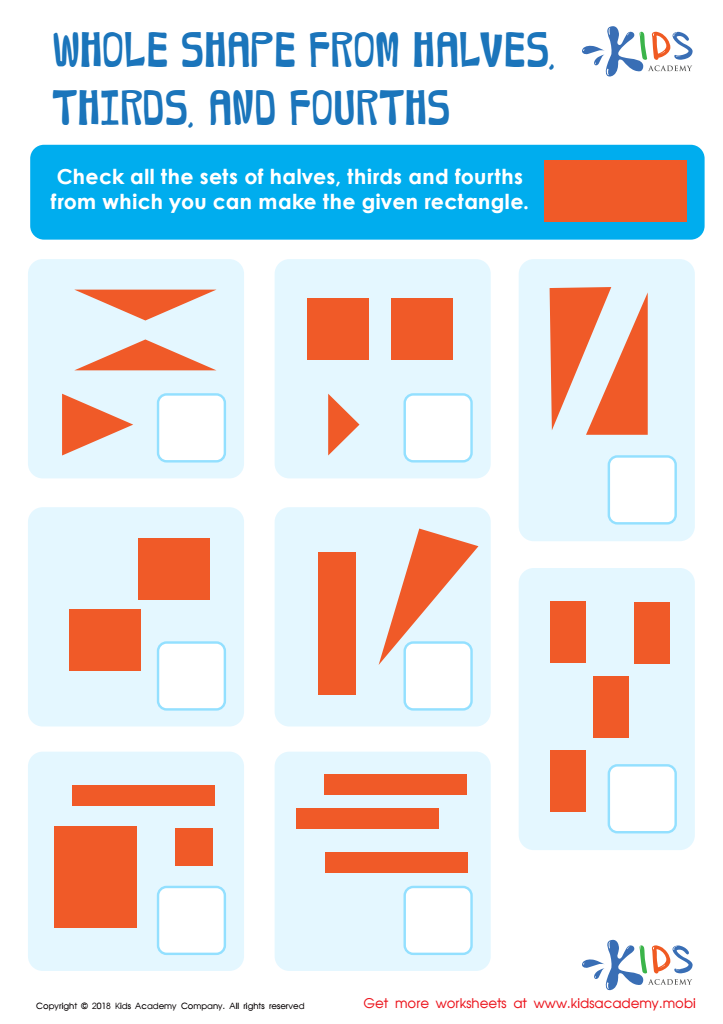

Whole Shape from Halves, Thirds and Fourths Worksheet
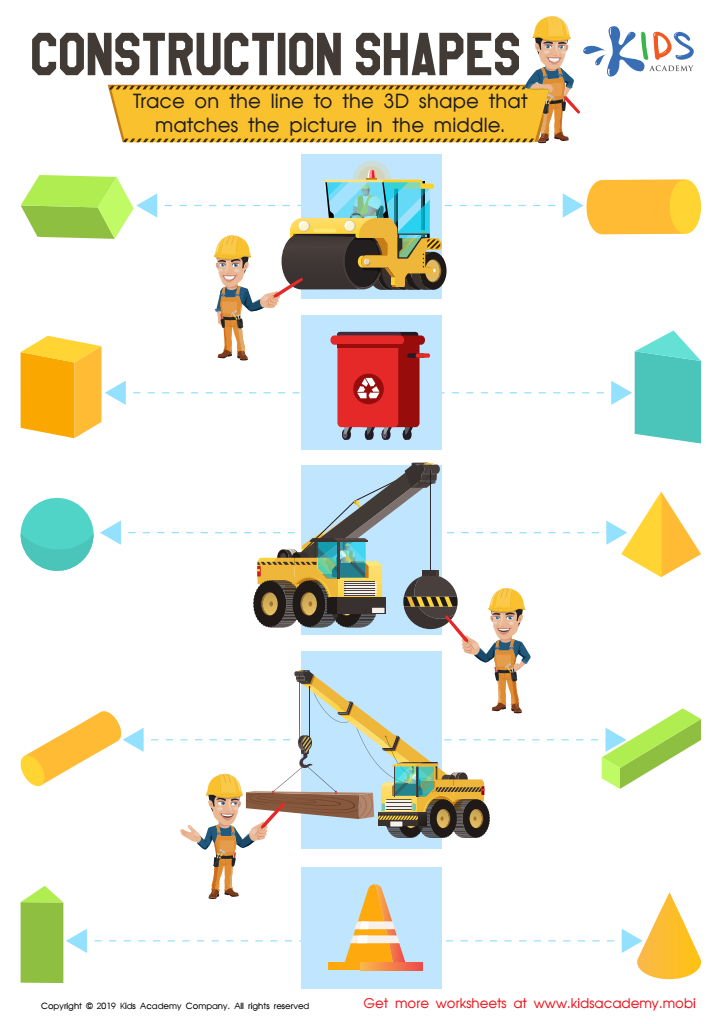

Construction Shapes Worksheet
Shape recognition is a fundamental building block in early childhood education that plays a crucial role in the cognitive development of children aged 6-7. For parents and teachers, understanding and promoting easy geometry concepts, such as identifying and classifying shapes, can significantly enhance a child's learning experience.
Firstly, shape recognition fosters critical thinking and problem-solving skills. When children learn to identify different shapes, they begin to discern the similarities and differences between objects, honing their analytical abilities. It also assists in the development of spatial awareness, as they understand how shapes fit together in the real world.
Additionally, early introduction to geometry can positively influence a child’s performance in math. Recognizing shapes provides a foundation for more complex mathematical concepts, such as measuring, estimating, and understanding symmetry and patterns.
Engaging children with fun activities, games, and hands-on experiences in geometry also encourages creativity and enthusiasm for learning. These activities drive excitement in the classroom and promote social skills as they collaborate with peers.
Ultimately, focusing on shape recognition in this critical developmental stage prepares children not only for academic success but also enhances their everyday life skills, making it a vital aspect of early childhood education.

 Assign to My Students
Assign to My Students


























